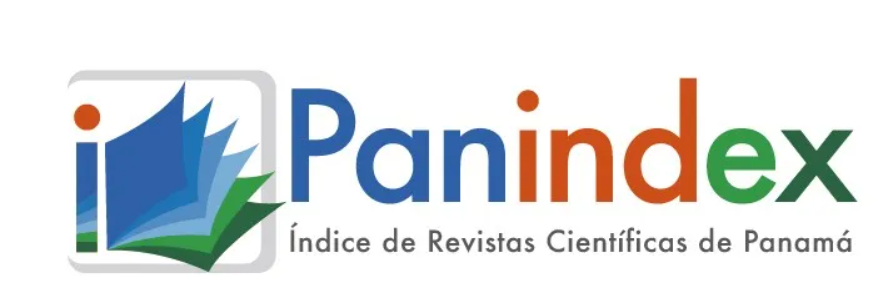Manuscripts sent to SALUTA Magazine must be original and unpublished and must not be simultaneously in the process of publication in other magazines, compilations or any other means of publication. The content of the publications and the links suggested in them are the sole responsibility of the authors and not of the METROPOLITAN UNIVERSITY OF EDUCATION, SCIENCE AND TECHNOLOGY
(UMECIT) or the magazine SALUTA. They are protected by international copyright laws as well as the logos of UMECIT AND SALUTA MAGAZINE, hence their reproduction is totally prohibited. The copyright will belong to the UMECIT.
Under a Creative Commons Attribution License authors may share work with acknowledgment of authorship of the work and initial publication in this journal.



Abstract
In this study, the theoretical elements considered in the examination of children with outstanding abilities in the field of Inclusive Education are presented. The research, theoretical, methodological, and social foundations are derived from Bunge's Systemism (2003) as a field vision that allows methodologies to be derived, with a diversity of interventions within a coherent and scientific field. Likewise, Renzulli (1978) is considered in the study of students with outstanding abilities, taking into account Morin's (2003) proposals on complex competencies. In this way, a Personalized Instruction System (SIP) program, initially developed by Fred S. Keller, was implemented in three students indicated by their teachers with grades 9 and 10 in the third grade of elementary school, for their intervention. First, the complex competencies that characterize them were evaluated; and later moved to to the SIP program, considering progress at their own learning pace, in both face-to-face and digital environments, representing an innovation in the field of inclusive education. The results of this study were analyzed with the Wilcoxon signed-rank test, with which a W = 21 was deduce with n s/r = 6 to obtain a significance value of 0.024, thereby confirming the effectiveness of the personalized instruction system in addressing this population, promoting the development of their characteristic competencies, and offering an inclusive alternative within their own school environment.
Keywords
References
Bunge, M. (2003). Philosophical Dictionary. Amherst, NY: Prometheus Books.
Castañeda, M., Granados, D., y Zepeta, E. (2013). Matriz de valoración de logro en competencias de salud para preescolares [Artículo]. Revista del Instituto de Psicología y Educación de la Universidad Veracruzana. 7(13). Pp. 23. ISSN 2007-1787.
Covarrubias, P. (2018). Del concepto de aptitudes sobresalientes al de altas capacidades y el talento. Revista de investigación educativa de la REDIECH, 9(17). 53-67. http://www.scielo.org.mx/scielo.php?script=sci_arttext&pid=S2448-85502018000200053
Google LLC (2023). Google Sites. https://sites.google.com
IBM Corp. (2013). IBM SPSS Statistics, Version 29.0.2.0. (20). Armonk, NY: IBM Corp. [Computer software].
Kaufmann, C. y Doval, D. (2007). Paternalismos pedagógicos. Las políticas educativas y los libros durante la Dictadura. (2ª). Argentina: Laborde Editor.
Keller, F. S. (1968). Good-Bye, Teacher. Journal of Applied Behavior Analysis, 1, 79-89. https://doi.org/10.1901/jaba.1968.1-79.
Keller, F. S. (1973). Aventura internacional en el campo de modificación de conducta. En Keller, F. S. & Ribes, E. (Eds.). Modificación de conducta. Aplicaciones a la Educación. Pp. 201-2011. México: Trillas.
Kerlinger, F.N. (2001) Investigación del Comportamiento. 2a Ed. México: McGraw Hill.
Miltenberger, R. (2013). Modificación de conducta. Principios y procedimientos. Madrid: Pirámide.
Morín, E. (2003). Introducción al pensamiento complejo. Barcelona. Gedisa.
Pierrel, R., & Sherman, J. G. (1963). Train your pet the Barnabus way. Brown Alumni Monthly. Feb, 8-14.
Reglas de Operación del Programa para la Inclusión y la Equidad Educativa. (20 de febrero de 2019). Diario Oficial de la Federación. México.
Renzulli, J.S. (1978). What makes giftedness? Reexamining a definition. Phi Delta Kappa, 60, 180-184.
Renzulli, J.S. (1978). What makes giftedness? Reexamining a definition. Phi Delta Kappa, 60, 180-184.
Salinas, P. y Cárdenas, M. (2009). Métodos de investigación social. Chile: Universidad Católica del Norte.
Secretaría de Educación Pública (2006). Propuesta de Intervención: atención educativa a alumnos y alumnas con aptitudes sobresalientes. Mexico: Secretaría de Educación Pública.
Secretaría de Educación Pública (2011). Programa de Educación Primaria 2011. México. http://www.sep.gob.mx
Skinner, B. F. (1968). Tecnología de la enseñanza. Barcelona: Labor.
Speller, P. (1978). El Sistema de Instrucción Personalizada (SIP): perspectivas en América Latina. Revista Latinoamericana de Psicología, 10(3). Pp. 463-472. https://www.redalyc.org/pdf/805/80510314.pdf
Tobón, S. (2007). El enfoque complejo de las competencias y el diseño curricular por ciclos propedéuticos. Acción pedagógica, 16. Pp. 14-28.
Downloads
Publication Facts
Reviewer profiles N/A
Author statements
- Academic society
- Universidad Metropolitana de Educación, Ciencia y Tecnología
- Publisher
- Universidad Metropolitana de Educación, Ciencia y Tecnología



















